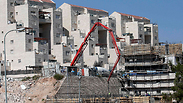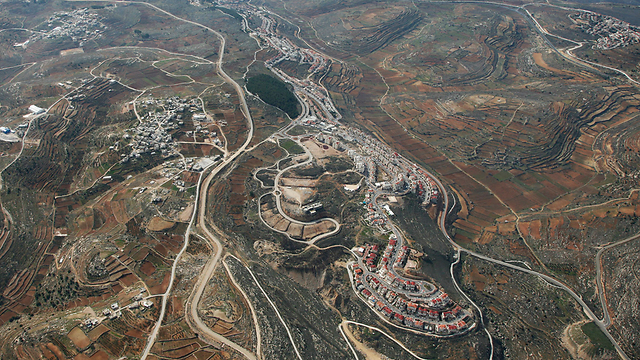
Why face facts when it’s easier to pretend settlements don’t exist?
Op-ed: It’s embarrassing to see right-wing aficionados squirm whenever they’re faced with results of investigations showing how West Bank settlements are actually a national security burden, Molad’s political analyst responds to Yoaz Hendel.
The column began with the usual baseless accusations against Molad. To be honest, it’s embarrassing to see right-wing aficionados squirm whenever they’re faced with the results of our investigations. When we exposed the corruption at the Settlement Division, they said we invented it; soon after, the attorney general stopped state funding of the division and the police raided its offices in connection with the Yisrael Beytenu affair.
When we exposed Minister Uri Ariel’s corruption, they said our conclusions were unfounded—yet the state comptroller confirmed the findings and went even further in his criticism. When we exposed the growing presence of religious right-wing non-profits in public schools, Education Minister Naftali Bennett’s representatives denied that the indoctrination project was underway, while teachers and parents continue to report instances of National Service volunteers affiliated with the Bayit Yehudi party replacing trained teachers.

Let us, then, dismiss these ridiculous slurs and get to the point. Hendel based his criticism on three arguments: One, that we did not interview security experts such as Maj. Gen. (res.) Gershon Hacohen, whose opinion differs from the majority of Israel’s defense establishment. Two, that we did not address the role of the settlements in Mapai’s security perception after the Six-Day War, which culminated in the Allon Plan. Three, that we did not discuss the importance of the settlements for dealing with a possible collapse of the regime in Jordan or with threats within the West Bank. Hendel concluded by asking: “Should the ‘research’ not have broached these questions as well?”
He’s absolutely right. It should have—and it did.
Since I don’t dare believe that Hendel would criticize something he has not actually read, let me jog his memory. We didn’t interview Maj. Gen. Hacohen because he already laid out his arguments in his book, “What Is National about National Security.” An entire chapter of the report was devoted to addressing these arguments in detail.
It’s also puzzling how Hendel failed to notice our lengthy explanation—including maps—of why the Allon Plan is no longer relevant. To recap: The loss of relevance is the result of the eastern front collapsing (due to the diminished threat from Iraq and the peace treaty with Jordan), coupled with developments in the IDF’s technological capacities and its combat doctrine. On a side note, Gush Emunim and the settlements that followed went far beyond the borders of the Allon Plan as early as the 1970s.
Finally, Hendel laments our overlooking the significance of the settlements for the future of the Jordanian regime. In reality, an entire section of the report is devoted to analyzing a scenario in which the Hashemite regime were to collapse, and a long chapter lays out strategies for defending Israel after the settlements are evacuated. Two separate “day after” scenarios are meticulously analyzed, the conclusion being that until Israel reaches an agreement with the Palestinians, it will need to maintain security measures in the West Bank, albeit on a smaller scale.
As combing through the report took up so much of Hendel’s time, I don’t blame him for failing to address the fact that the settlements have become a milestone around Israel’s neck, in terms of security. He simply had no time to come up with a counter-argument for the fact that the settlements extend Israel’s lines of defense in defiance of military logic, that they are the obstacle to completing the separation barrier, that they are draining Israel’s security resources and reducing IDF preparedness for an emergency, or that some settlers are actively battling the IDF.
Hendel doesn’t have to like the conclusions of our report, but serious criticism is based on knowing what you are railing against. The thing is, when you don’t have a good response to arguments against the settlements, it’s easier to pretend they don’t exist.
Avishay Ben-Sasson Gordis, a retired Israel Defense Intelligence major, is a research fellow at Molad and a PhD student at the Harvard Department of Government.










